Compare
Free shipping
Best price guarantee
SimpleCrew exclusive savings
0% financing options
Tire replacement coverage
24/7 roadside assistance
Easy returns
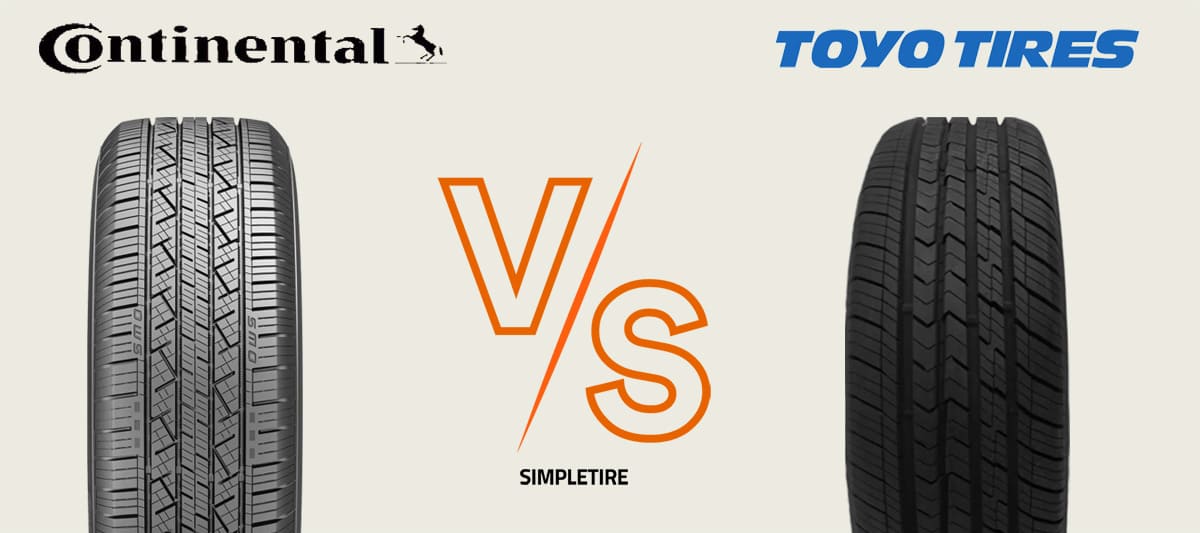
When it comes to premium all-season tires for crossovers and SUVs, Continental and Toyo are always going to provide some of the best options in the market. Both tire manufacturers have over a century in the business as leaders in engineering, manufacturing, and design. Both have decades of experience in motorsports (informing the development of their consumer tires) and a very strong reputation for innovation and quality. All-season tires, also called touring tires at times, are, of course, the perfect fit for many drivers thanks to their balance of great wear properties, an accommodating ride with low noise, capable and sharp handling, and dependable performance year-round in just about every kind of weather condition other than heavy snow.
In this head-to-head matchup, the Continental and Toyo tires have one thing in common: they’re low rolling resistance designs. That means lowering the friction involved to get a vehicle moving and keep it heading down the road, resulting in lower emissions and improved fuel economy over the tire’s lifespan. Both the above have increasingly become important to a lot of American drivers today. The emphasis on low rolling resistance is, of course, right alongside all their design features that check all the boxes for a premium all-season tire.
In the course of this product comparison, you’ll see us make frequent references to SimpleScore numbers. If you’re not familiar with SimpleScore, it’s the proprietary ranking system that our SimpleTire team has developed for rating tires as per their technical details, specs, customer reviews, manufacturer information, and other data points. Customers find it to be a quick and handy resource to get an overview of any tire’s strengths and weaknesses.
For the Continental CrossContact LX25 and Toyo Open Country Q/T, the SimpleScore numbers break down this way:
Continental CrossContact LX25:
- Traction: 8.6
- Handling: 8.9
- Longevity: 8.8
- Overall average: 8.7
Toyo Open Country Q/T:
- Traction: 8.2
- Handling: 8.7
- Longevity: 9.0
- Overall average: 8.6
As you can see, these tires are pretty closely matched but still have some disparities in their SimpleScore ratings. As handy as SimpleScore is, it’s also a 30,000-foot view that doesn’t delve into detail to give you the full story of what to expect with a tire. Let’s go in for a closer look with this Continental CrossContact LX25 vs Toyo Open Country Q/T tires comparison, shall we?
Continental CrossContact LX25 tires
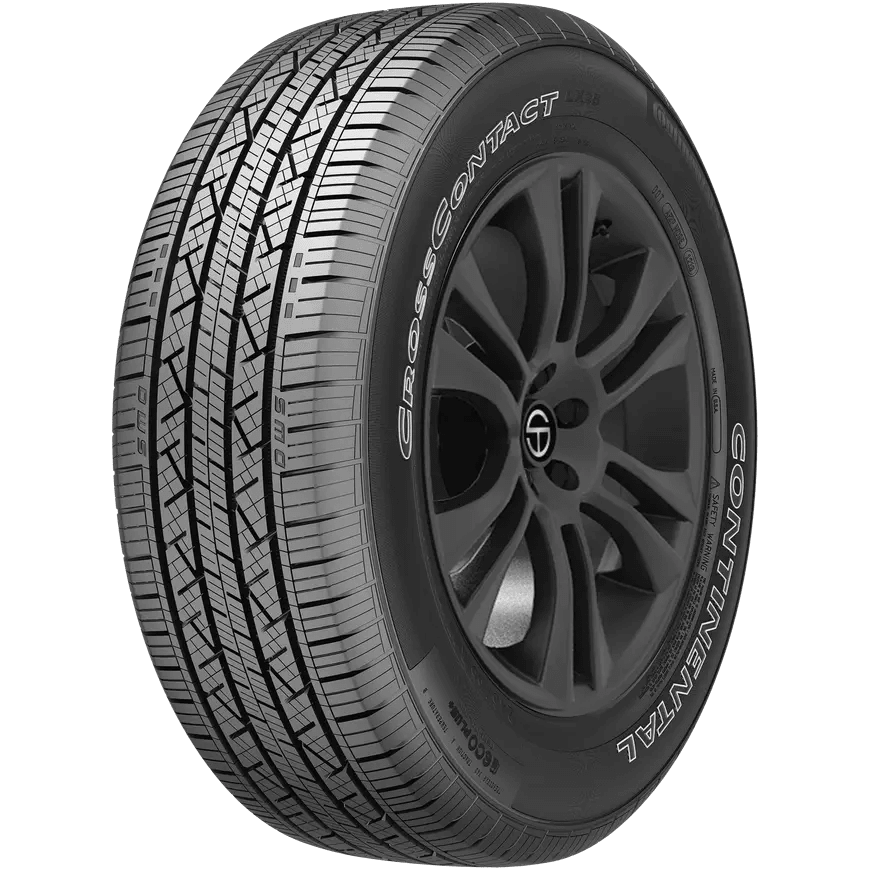
There is a lot to like about the Continental CrossContact LX25. We’re pretty impressed with Continental’s EcoPlus Technology, a package of design elements that decrease rolling resistance, help cut CO2 emissions, and boost fuel economy. Ride quality is plush and quiet with a polyester casing with two steel belts and a spiral-wrapped polyamide cap layer, and Continental’s ComfortRide adds another layer that helps to absorb vibrations, bumps, and road irregularities (as well as helping to suppress road noise).
Continental’s Silane+ additive in the tread compound helps to encourage long, even wear along with enhancing wet-weather grip, and the CrossContact LX25’s system of 3D sipes, circumferential grooves, and lateral grooves work together to resist hydroplaning by rerouting water away from the tire’s contact patch on wet roads. Its footprint has been optimized to put more rubber on the road for improved handling, braking, and traction, and its innovative Tuned Performance Indicators and built-in Alignment Verification System molded into the tread grooves enable a driver to check at a glance how their tires are wearing. Continental covers the CrossContact LX25 with an up-to-70,000 mile limited manufacturer’s tread life warranty (depending on tire size). SimpleTire’s price on the Continental CrossContact LX25 starts at $150.99 per tire.
Toyo Open Country Q/T tires
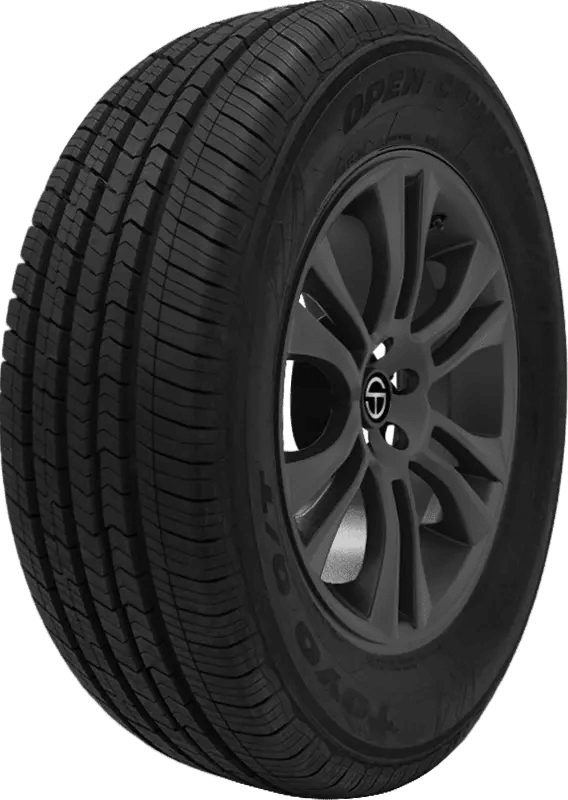
With the Open Country Q/T, Toyo has designed a performance-oriented all-season tire for luxury and high-end SUVs and crossovers. Quiet and refined, the Open Country Q/T is designed for durability, confident handling, secure road manners, year-round performance, and great wear properties. The Open Country Q/T is designed with Toyo’s Silent Wall technology that delivers a quiet ride on the highway by cutting down on pipe resonance. Its asymmetric all-season tread is optimized for cornering and steering response toward the shoulder, with the tread’s center section enhancing acceleration and braking performance and the inboard side designed for great stability and road manners. Toyo covers the Open Country Q/T with a 65,000 mile limited manufacturer’s tread life warranty.
Continental CrossContact LX25 vs Toyo Open Country Q/T tires on traction
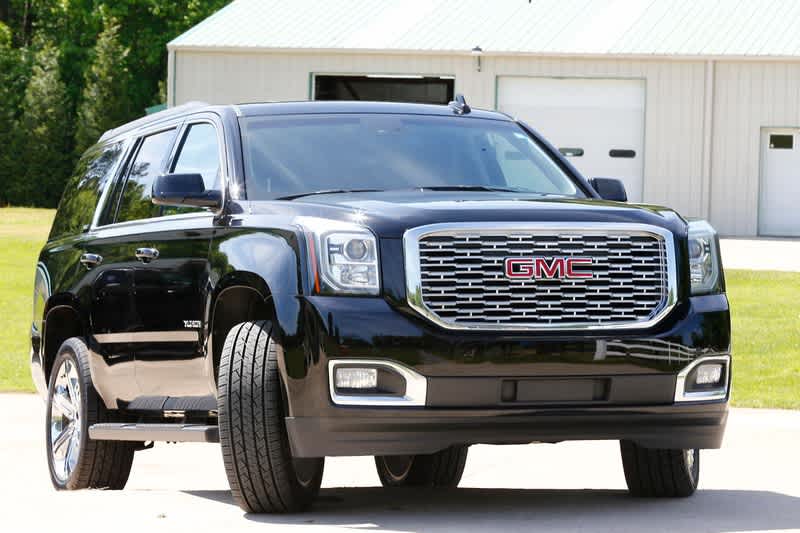
First off, let’s see how the Continental CrossContact LX25 and the Toyo Open Country Q/T compare against each other in the traction category. In this instance, it’s not really close, with the Continental coming in with an 8.6 SimpleScore vs 8.2 for the Toyo. We’re impressed with the asymmetric all-season tread design of the Toyo, but the Continental’s combination of +Silane tread compound along with its network of grooves, lateral grooves, and sipes helps boost grip for acceleration, cornering, and braking on wet or dry roads. We should note here that neither the Continental nor the Toyo are really designed for serious winter driving, and neither has the Three Peak Mountain Snowflake certification for severe winter service. Still, our call is:
ADVANTAGE: Continental CrossContact LX25
Continental CrossContact LX25 vs Toyo Open Country Q/T tires on handling
When it comes to handling, the spread between SimpleScores with the two tires is a lot tighter: a SimpleScore of 8.9 for the Continental vs 8.7 for the Toyo. The asymmetric tread design of the Toyo has a lot to do with its enhanced handling ability, with its reinforced shoulder blocks and outboard side optimized for sharp handling and cornering. Still, that edge in traction with the Continental also means improved handling properties – after all, if your vehicle can’t get a good solid grip going into a corner, the front wheels are going to plow ahead of your turn and understeer, or kick the rear end out and oversteer (neither of which are desirable at all). It’s a close one, but our call is:
ADVANTAGE: Continental CrossContact LX25
Continental CrossContact LX25 vs Toyo Open Country Q/T tires on longevity
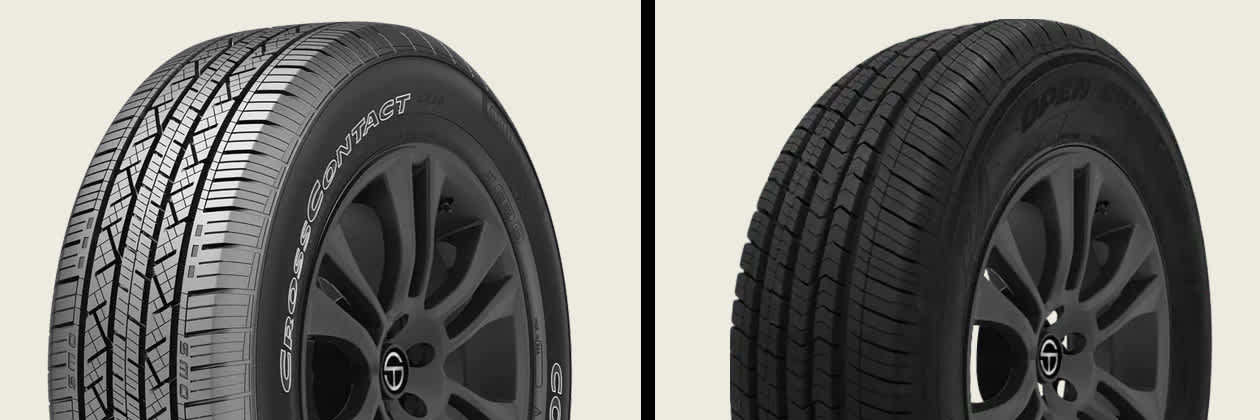
When we get to the longevity category, the Toyo actually pulls ahead of the Continental with a SimpleScore of 9.0 vs the Continental’s 8.8. It’s a little counterintuitive, as usually it’s the limited manufacturer’s tread life coverage that tells the story behind SimpleScore rankings for longevity. The Continental, though, has a limited manufacturer warranty of 70,000 miles and 65,000 miles for different sizes, as against 65,000 miles for the Toyo. When there’s a disparity like that, we usually just defer to the customer reviews as the factor that moves the needle towards SimpleScore. We listened to the customers here, and our call is:
ADVANTAGE: Toyo Open Country Q/T
When to use each
So let’s take this question in the context of your vehicle, your driving style and your needs. If you live in a part of the country (think New England, the upper Midwest, or Canada) that has rough winter weather every year and snow that stays on the road for days at a time, all-season tires like the Toyo or Continental probably aren’t the best choice, and you should maybe consider dedicated winter tires for those conditions. If you’ve got a sports sedan, sporty crossover or sports car and you want the kind of cornering, steering response, and braking performance that allows you to push your vehicle’s handling envelope, all-season tires like the Toyo and Continental might not be quite nimble enough for your expectations. If, on the other hand, your priorities are great wear properties with a generous limited manufacturer’s tread life warranty, capable handling, confident traction and braking, a quiet and refined ride, and stable road manners, tires like the Continental CrossContact LX25 and Toyo Open Country Q/T could both be great choices for you.
Which one should you choose?
On the face of it, the Continental looks like the superior choice with an overall SimpleScore of 8.9 vs an 8.6 for the Toyo. That doesn’t really tell the whole story, though, as the Toyo has plenty to like in terms of its design, features and performance. The asymmetric tread design of the Toyo is an innovation that gives it a little more versatility, and Silent Wall technology means it’s a civilized, quiet and refined tire on the highway. So let’s take price into the equation as well:
SimpleTire’s price on the Continental starts at $155.51 per tire ($622.04 for 4) vs $136.21 per tire ($544.84 for 4) for the Toyo. That tips the scales a bit when you consider that you can realize some pretty substantial savings with the Toyo over the Continental. So yes, the Continental does have some advantages in terms of performance but it’s not exactly head-and-shoulders above the Toyo. We’d just break it down this way: if you can afford the Continental CrossContact LX25, that would be a great choice in a performance-oriented all-season tire for your vehicle. If you want to save a little money on your purchase of a full set of tires, you should think about the Toyo Open Country Q/T. They’re both great options in premium-brand all-season tires.
Still not sure which tire to buy? Fortunately, SimpleTire is here to help, and our helpful agents will be more than happy to assist you in selecting the right tire for your ride and budget.
Ready to find the perfect tires?
Search By